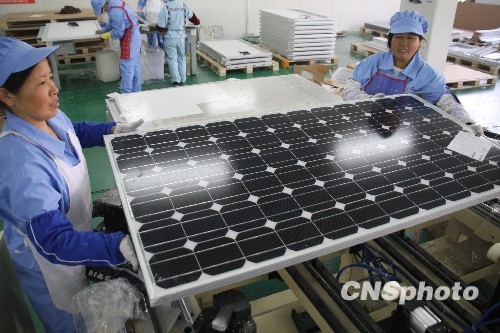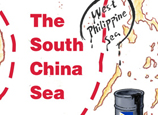
 |
"The final result will not benefit either side as the entire global solar industry will be badly hurt amid an escalating trade war. But China's move will probably force the EU to turn to negotiations for resolving the dispute," he added.
Zhou said one way out of solar disputes between China and the West is to exploit China's domestic market, as 90 percent of the country's solar-grade polysilicon is imported and 90 percent of the finished products are exported, with the EU and the US the biggest export destinations.
The Ministry of Commerce said a ruling on retroactive duties will be announced along with preliminary and final findings of anti-dumping and countervailing investigations into polysilicon from the US and EU, and an anti-dumping investigation into polysilicon made in South Korea.
China imported 64,600 metric tons of polysilicon in 2011, up 36 percent from a year earlier, with a total import value of $2.59 billion. The US and South Korea accounted for 60 percent of China's imports in 2011, but low prices from these sources saw 80 percent of domestic producers suspend operations as well as 5,000 job losses.
The ministry's statement said polysilicon exporters in the US and South Korea and domestic importers must provide monthly data within 15 days on the amount and value of the raw material sold to China from January to October and have been told to keep providing the information until the preliminary findings of the investigation are announced. EU suppliers had been told to submit the data by May.
Gao Honglin, deputy secretary-general of the China Photovoltaic Industry Alliance, said that the move by the Commerce Ministry will have a beneficial effect on domestic polysilicon producers.
















 Pretty model shines at Guangzhou Auto Show Hyundai Motor stage
Pretty model shines at Guangzhou Auto Show Hyundai Motor stage


![]()
